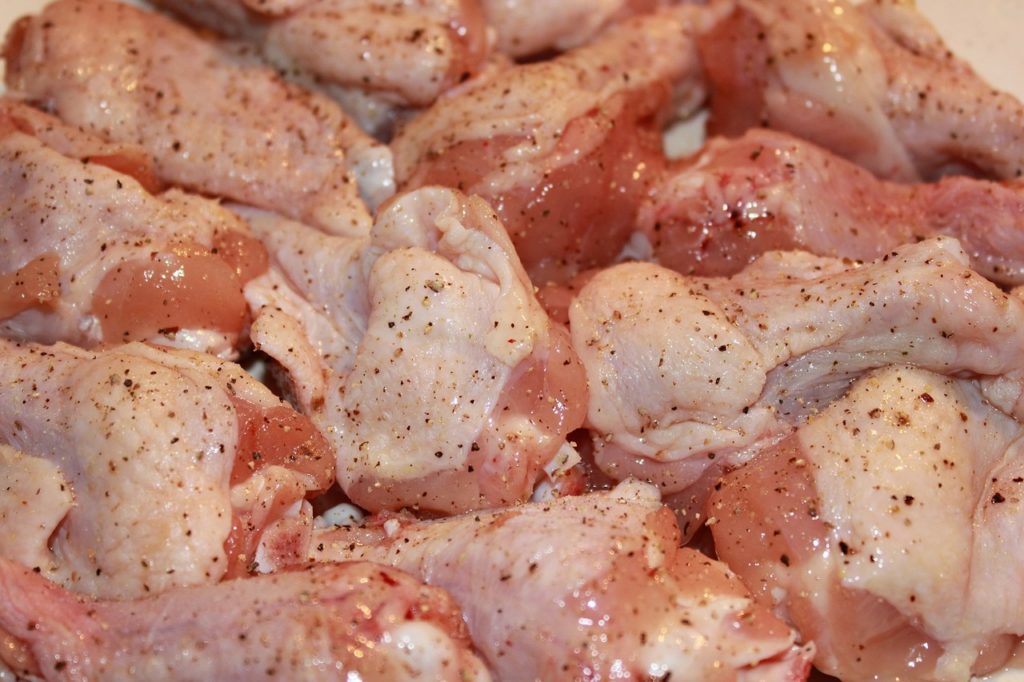Americans eat more chicken every year than any other meat. Chicken can be a nutritious choice, but raw chicken is often contaminated with Campylobacter bacteria and sometimes with Salmonella and Clostridium perfringens bacteria. If you eat undercooked chicken or other foods or beverages contaminated by raw chicken or its juices, you can get a foodborne illness, which is also called food poisoning.
That’s why it’s important to take special care when handling and preparing chicken.
You Can Take Steps to Prevent Food Poisoning
If chicken is on your menu, follow these tips when shopping, cooking, and eating out to help prevent food poisoning:
CDC estimates that every year about a million people get sick from eating poultry that’s contaminated with harmful germs. That’s why it’s important for you to take steps to protect your health and the health of your loved ones when it comes to chicken.
- Wash hands with warm soapy water for 20 seconds before and after handling chicken.
- Do not wash raw chicken. During washing, chicken juices can spread in the kitchen and contaminate other foods, utensils, and countertops.
- Use a separate cutting board for raw chicken.
- Never place cooked food or fresh produce on a plate, cutting board, or other surfaces that previously held raw chicken.
- Wash cutting boards, utensils, dishes, and countertops with hot soapy water after preparing chicken and before you prepare the next item.
- Use a food thermometer to make sure chicken is cooked to a safe internal temperature of 165°F.
- If cooking frozen raw chicken in a microwavable meal, handle it as you would fresh raw chicken. Follow cooking directions carefully to prevent food poisoning.
- If you think the chicken you are served at a restaurant or anywhere else is not fully cooked, send it back for more cooking.
- Refrigerate or freeze leftover chicken within 2 hours (or within 1 hour if the temperature outside is higher than 90°F).
Should you call the doctor?
Anyone can get food poisoning, but children younger than 5 years of age, adults aged 65 and older, people with weakened immune systems, and pregnant women are more likely to develop a serious illness.
Call or see the doctor if you or someone in your care has the following signs of food poisoning:
- High fever (temperature more than 102°F)
- Diarrhea for more than 3 days that is not improving
- Bloody stool
- Prolonged vomiting that prevents you from keeping liquids down
- Signs of dehydration, such as:
- Making very little urine
- Dry mouth and throat
- Dizziness when standing up

